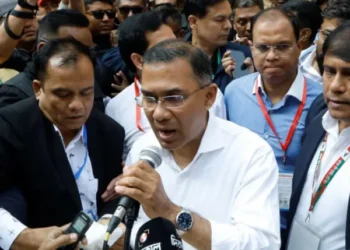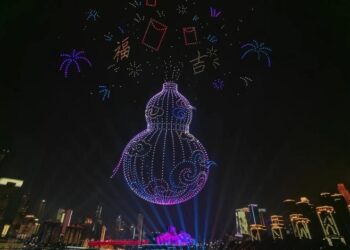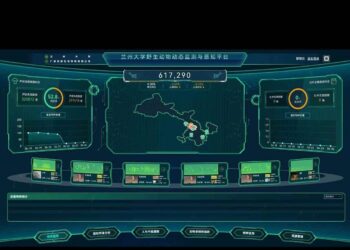In the face of mounting regional tensions and escalating rhetoric from Israel and the United States, Iranian Foreign Minister Seyyed Abbas Araqchi has issued a strong and clear statement asserting that Iran remains committed to diplomacy and is acting solely in self-defense. His comments, made via the social media platform X (formerly Twitter), reject international allegations that Iran is pursuing nuclear weapons, emphasizing that Tehran’s actions are reactive and defensive in nature.
Araqchi’s remarks come at a time of heightened confrontation in the Middle East, particularly following renewed threats of military action from Israel and speculation over U.S. involvement in a possible strike against Iran’s nuclear infrastructure. Amid these developments, Iran’s top diplomat has reiterated the country’s long-standing position on nuclear disarmament, asserting that Iran has never sought nuclear arms and has no intention of doing so.
Iran’s Stance on Nuclear Weapons: “No Intention to Develop Inhuman Arms”
Foreign Minister Araqchi categorically dismissed claims from Washington and Tel Aviv that Iran is on the brink of acquiring a nuclear weapon. Addressing these concerns in his official statement, he wrote:
“Iran has never tried to obtain nuclear weapons and will not do so in the future. If we really wanted to develop such inhuman weapons, there would be no better time than when the only nuclear-armed state in the region is openly aggressing against Iran.”
This pointed reference to Israel’s nuclear arsenal—a long-denied but widely acknowledged fact in international circles—was meant to highlight the double standards at play in regional security discourse. Iran has consistently argued that Israel’s undeclared stockpile of nuclear weapons remains the greatest threat to Middle Eastern stability.
Araqchi’s statement aligns with Iran’s repeated assertions at the United Nations and the International Atomic Energy Agency (IAEA), where Tehran maintains that its nuclear program is solely for peaceful purposes, such as energy production and medical research.
Self-Defense Amid Hostile Environment
Foreign Minister Araqchi further explained that Iran is facing unprecedented levels of aggression, citing threats of military intervention, covert operations, cyberattacks, and targeted assassinations—often blamed on Israel or its allies.
“We are acting solely and exclusively in self-defense,” he said. “The level of aggression being directed at Iran is extremely serious and cannot go unanswered.”
His statement reflects Iran’s current security doctrine, which emphasizes strategic deterrence, regional alliances, and non-conventional defense capabilities. Tehran’s policymakers argue that any moves made—whether military exercises, drone developments, or ballistic missile tests—are a response to hostile provocations, not steps toward offensive warfare.
Highlighting Israel’s Role in Escalating Regional Conflict
A key focus of Araqchi’s message was the destabilizing role of Israel in the current Middle East scenario. He accused the Israeli government of actively trying to escalate tensions, possibly to provoke a wider regional conflict that could draw in the United States and other global powers.
“The world should be deeply concerned about Israel’s attempts to escalate the conflict,” Araqchi warned.
This aligns with Iran’s long-held position that Israel’s actions—particularly in Palestine, Syria, and Lebanon—are aimed at disrupting diplomatic efforts and ensuring that the region remains embroiled in perpetual instability. Iran has frequently called on the international community to hold Israel accountable for what it describes as violations of international law, including illegal settlements, airstrikes in neighboring countries, and aggressive military posturing.
Iran’s Diplomatic Message to the World
Araqchi’s statement is widely seen as a public reaffirmation of Iran’s commitment to diplomacy, particularly at a time when speculations of war are rife. Analysts interpret his message as an invitation to resume peaceful dialogue, possibly even reopening channels that had existed during the Joint Comprehensive Plan of Action (JCPOA)—commonly known as the Iran nuclear deal.
“This statement by the Iranian Foreign Minister is being described as a clear message of Iran’s current policy on the global stage, which emphasizes prioritizing dialogue and diplomatic means to resolve the conflict.”
Iran has repeatedly insisted that it is open to negotiations, provided that these are conducted on equal terms, with mutual respect, and without preconditions or coercive tactics. Tehran believes that diplomacy, not threats, is the only viable path to resolving long-standing disputes, particularly over its nuclear program and regional policies.
U.S. and Israeli Accusations: Renewed Pressure Campaigns
Despite Iran’s calls for diplomacy, both the United States and Israel have continued to express skepticism. Washington, particularly under President Trump and even in the early months of subsequent administrations, has maintained that Iran must be held accountable for its ballistic missile tests, support for armed non-state actors, and alleged nuclear ambitions.
Israel, meanwhile, has stepped up its rhetoric, warning that Iran is weeks away from developing a bomb and arguing that preemptive strikes are necessary to prevent it. Israeli Prime Minister Benjamin Netanyahu has historically taken a hard line against Iran and has been vocal in calling for international military action.
However, many global observers, including European Union members, China, and Russia, have urged restraint. These powers advocate for a return to the JCPOA, from which the U.S. withdrew in 2018, in order to bring Iran’s nuclear program back under international oversight.
The JCPOA and Future Diplomatic Prospects
Iran’s statements, including Araqchi’s latest comments, are seen as attempts to revive momentum for diplomatic re-engagement. The JCPOA, signed in 2015 between Iran and the P5+1 (China, France, Russia, the UK, the US + Germany), placed strict limits on Iran’s nuclear activities in exchange for sanctions relief.
When the U.S. exited the deal in 2018 and reimposed sanctions, Iran gradually reduced its compliance with JCPOA limits. However, Tehran has consistently stated that these measures are reversible, provided that the deal is fully honored by all parties.
Araqchi’s emphasis on Iran’s non-nuclear weapons stance, alongside calls for global concern over Israel’s provocations, may be part of a broader diplomatic narrative aimed at creating space for future negotiations—especially amid changing global political dynamics.
International Reactions and Calls for De-escalation
The international community has taken note of Araqchi’s comments, with many foreign policy experts interpreting them as a deliberate effort to lower tensions. Countries like Germany, France, and Japan have reiterated the need for restraint on all sides, emphasizing the danger that even a small incident could lead to widespread conflict in the Gulf and beyond.
The United Nations Secretary-General has also expressed concern about the increasing rhetoric and urged all parties to return to the path of diplomacy and avoid any miscalculations.
Conclusion: A Diplomatic Pivot in a Time of Crisis
At a time when the Middle East sits on a knife’s edge, Seyyed Abbas Araqchi’s statement serves as both a clarification and a warning. While reaffirming Iran’s commitment to peaceful engagement, it also defends the country’s right to respond to aggression.
This careful balancing of defensive posturing and diplomatic outreach is emblematic of Iran’s broader strategy—seeking international legitimacy while ensuring national security.
As regional and global powers deliberate their next moves, the question remains: will the path of diplomacy prevail, or will military brinkmanship once again push the region closer to conflict?

























